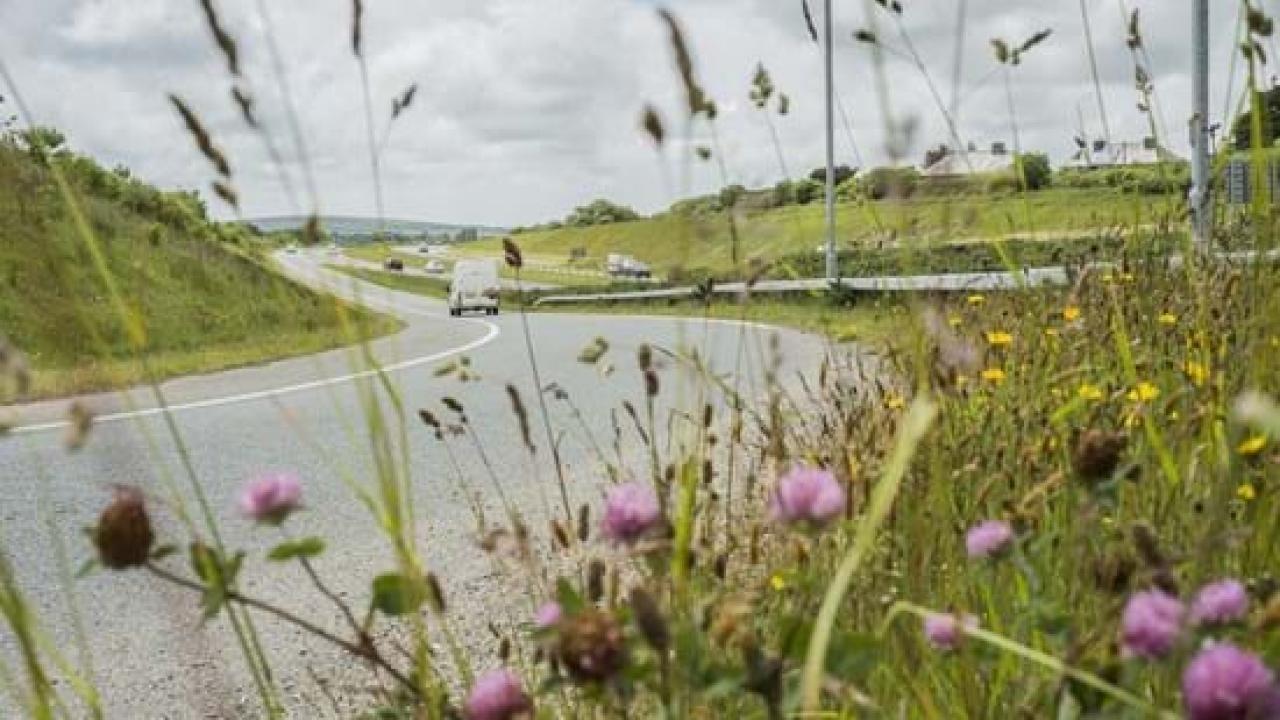National Highways has reported that it has made good progress in its goal of cutting carbon emissions from England’s busiest roads to net zero.
Two years on from the launch of its Net Zero Highways plan, the company reported that it has achieved reductions against all three pillars – corporate, construction, road users – of its net zero plan.
Achievements recorded in the last year include becoming the first roads organisation in the world to receive PAS2080 verification in December ‘22, publishing a net zero roadmaps for concrete, steel and asphalt, increasing its low emission vehicle fleet to 67%, implementing low energy LED lighting across 28% of its network, and launching the Low Carbon opportunities register.
Additionally, in 2022/23, National Highways achieved a reduction across all three emission sectors against the revised 2019/20 baseline, with a corporate carbon emissions reduction of 61 per cent, construction & maintenance reduction of 9 per cent and a road user carbon emissions reduction of 6 per cent.
Having already achieved several commitments and as National Highways’ understanding of data continues to improve, its net zero plan will also continue to evolve as additional information and data becomes available to ensure the company remains on track.
Steve Elderkin, Director of Environmental Sustainability at National Highways, said: “Over the last two years, colleagues across National Highways and our supply chain have been turning our net zero plan into a reality.
“That’s what this requires; a huge joint effort across our industry, supported with the right policies. I am encouraged because I see good decisions being made and we’re moving in the right direction. This has built the foundations of the programme that will deliver our targets, moving us forward as outlined in this progress report.
“We’ll continue to be open and transparent on our journey to net zero and believe this is the best approach to building trust and leadership in the sector, and our progress is something we are hugely proud of.”
Today’s progress report, which represents the second annual update to the company’s strategy – Net zero highways: our 2030 / 2040 / 2050 plan, shows a difference in carbon figures to those reported in National Highways’ Annual Report and Accounts, due to ongoing data improvement work.
The report includes National Highways’ annual carbon footprint and new examples of carbon-cutting activities introduced by the company.
It also ensures that the actions in its net zero plan contribute to environmental health, resilience for nature, and communities around its motorway and major A-road network.
The 4,300-mile Strategic Road Network is one of the country’s most critical pieces of infrastructure, directly supporting more than 64,000 jobs and delivering £314 billion to the economy. Operating, maintaining and using the network does come at a cost, with the SRN being a major source of carbon emissions.
However, vehicle emissions are expected to decline rapidly as electric power replaces petrol and diesel propulsion in the coming years and decades. National Highways has a long-term vision to capitalise on the latest technologies and new ways of working to decarbonise the network, while still enabling motorists to get from A to B, as quickly as possible.
National Highways’ plan committed to cutting its own corporate emissions to net zero by 2030, followed by maintenance and construction emissions by 2040 and those from road users by 2050.







